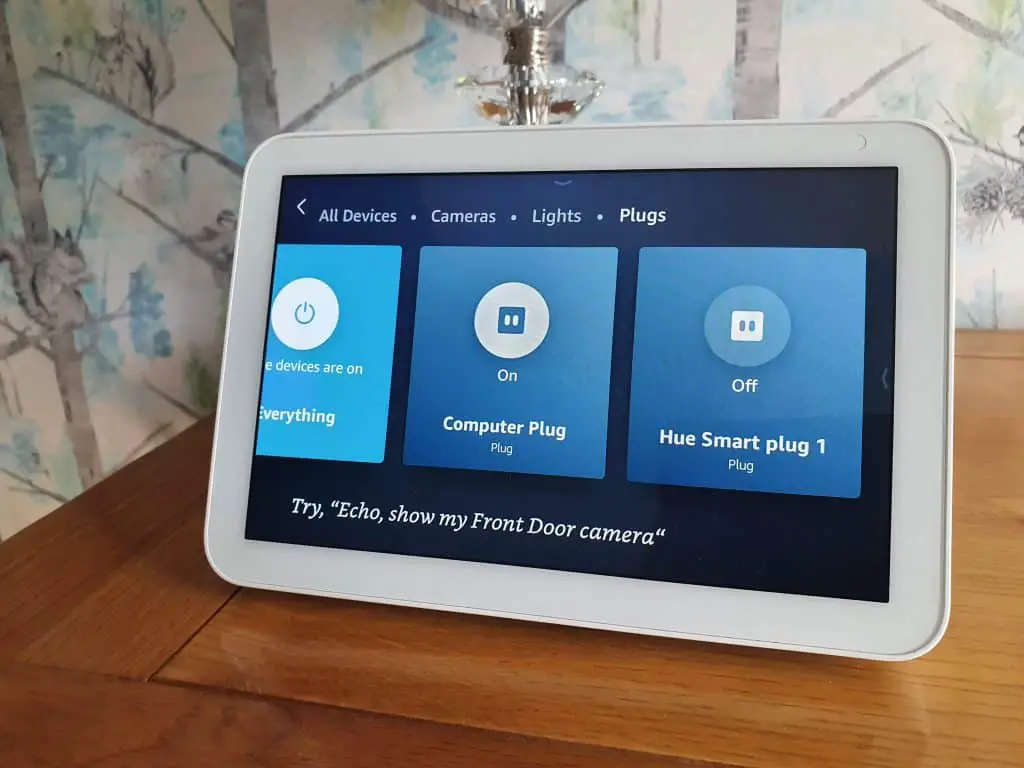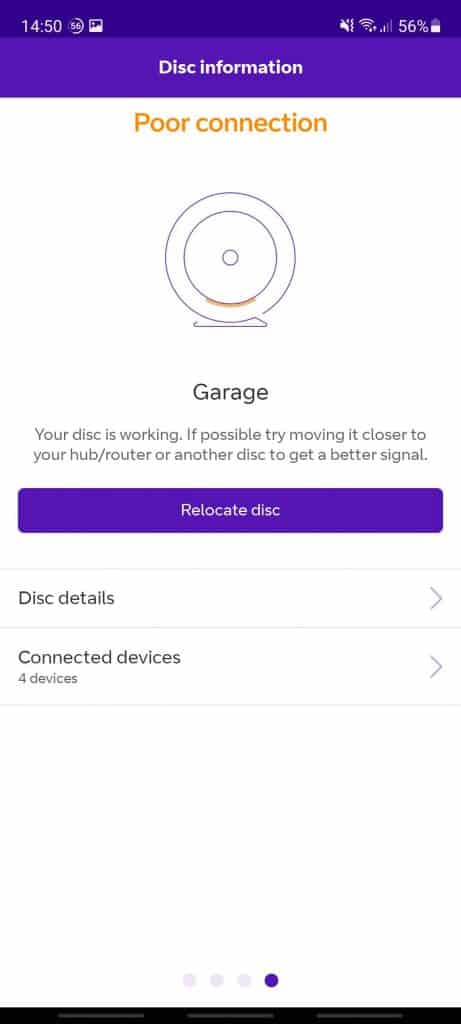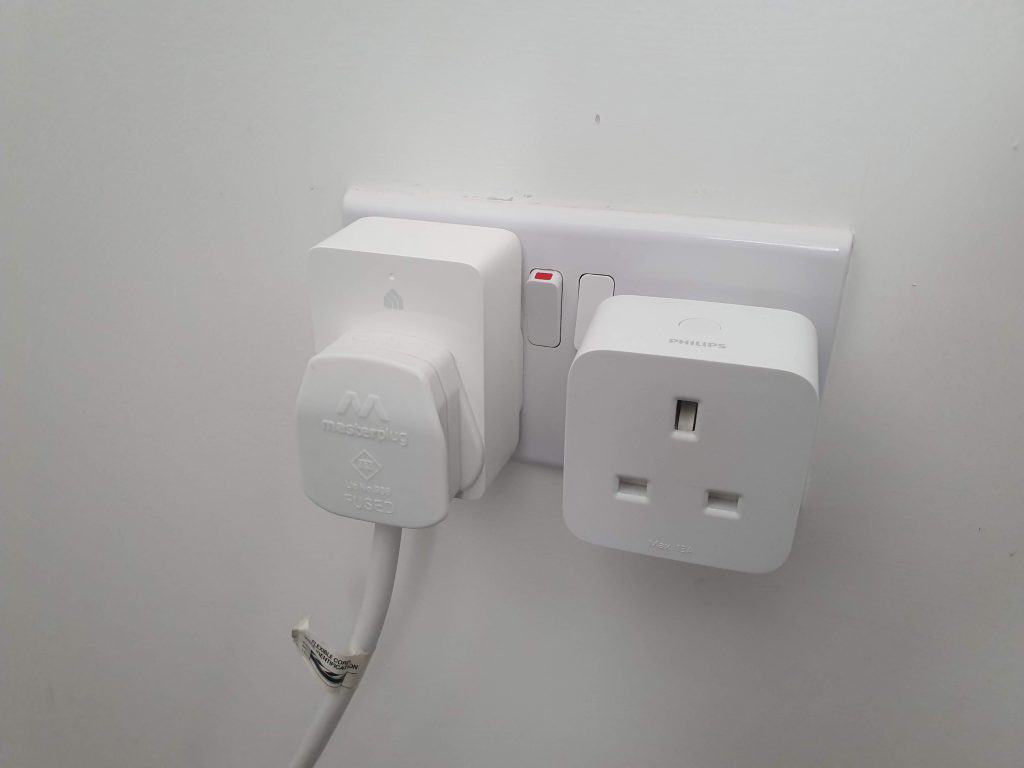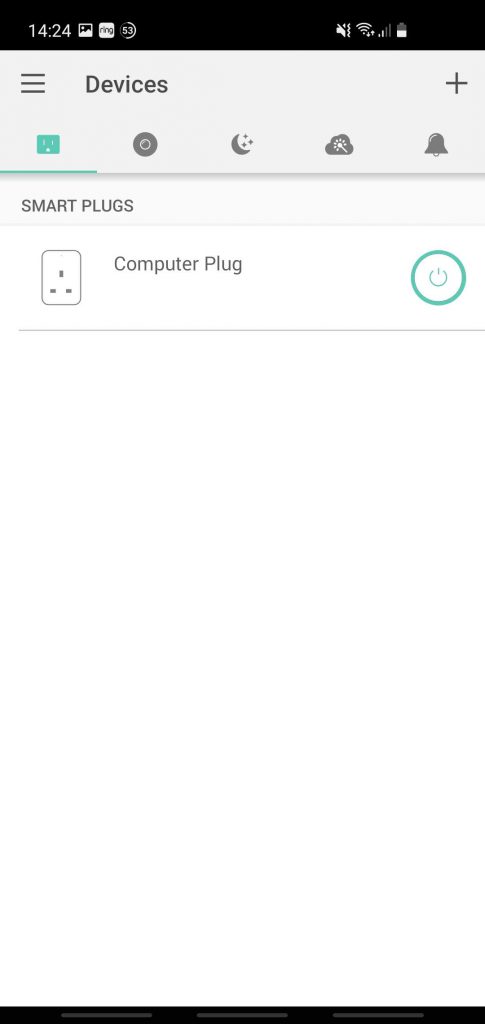Smart plugs have the ability to turn your boring devices into a fully-integrated suite of appliances.
Unfortunately, smart plugs can occasionally turn on or off by themselves. This can be especially frustrating if you rely on your smart plug to automate important tasks.
In this article, we’ll explore all the different reasons your smart plug may turn off (or on) by itself. We’ll also provide an extensive troubleshooting guide to prevent this from happening again.
Let’s get started!
Reasons Your Smart Plug Keeps Turning On or Off

Here are some of the most common reasons your smart plug isn’t acting very smart.
1. Inconsistent Connection

One of the most common (and easiest to fix) issues with smart plugs is connectivity issues. If your smart plug appears to be working fine then abruptly turns off (and back on again), this might be related to the WiFi connection.
If your WiFi signal is weak, your smart plug will fail to maintain a connection with the server and may switch off on its own. If the connection is regained, the smart plug will resume its activities.
Some smart plugs display a “connection lost” notification, but others can be more obscure about the dropped connection.
2. Faulty Socket
Before you start looking into problems with the smart plug, make sure your actual wall socket is working correctly.
Most of the time, a faulty socket means no connection at all. This can be easily discovered by simply plugging in another appliance and confirming there’s no power coming through.
Unfortunately, faulty sockets may also cause your smart plug to turn off and on randomly. If you suspect your socket isn’t working properly, try another socket.
3. Faulty Plug

Okay, so you’ve given your smart plug plenty of excuses. Now it’s time to start pointing fingers.
An internal issue with your smart plug can manifest in various ways. Your plug may not power on at all, it may turn on and off randomly, or it may crash when certain tasks are being carried out.
A faulty plug is quite common in the first few weeks of usage. If all fails, the best approach would be to contact the plug’s manufacturer about a possible return or exchange.
If your plug fails after the warranty period, you could send it to a repair shop. However, this will only work if there’s a problem with the wiring or pin connectors. It’s almost impossible for the repair shop to have a spare chipset for your specific plug.
If the repair shop can’t fix it, maybe it’s time to buy a new smart plug?
4. Outdated/Buggy Software
Your smart plug may still be at fault, but it doesn’t have to be internal.
Buggy firmware can cause your smart plug to freeze, suddenly stop working, or randomly restart. Fortunately, a firmware update usually patches up any issues.
Even with the latest software, your smart plug may run into an issue that causes it to crash and reboot. If this happens, a factory reset may do the trick.
A factory reset won’t revert your firmware back to an old version; it’ll just reset your smart plug back to its original settings. This resets all the network settings (port forwarding and DNS) that may cause your smart plug to run into issues.
Some smart plugs automatically update to the latest firmware. In most cases, this is great news. However, sometimes a new firmware can come with a pesky bug that causes your plug to turn on and off on its own.
In this situation, the best thing to do is contact the manufacturer about the issue and wait for another firmware update. Manufacturers are usually quick with these patches since all users are affected by the same issue.
5. Server Maintenance
Servers are basically the medium between your smart plug and all the appliances at home. If the server is undergoing maintenance or crashes for any reason (i.e. too much traffic, server error… etc), your smart plug will stop working.
If this is the case, your smart plug should go back to working properly in a matter of minutes to hours.
6. Scheduling Settings
So far, we’ve covered software issues, hardware issues, and server issues. It may be hard to admit, but sometimes, the reason your smart plug turns on or off randomly is because of user issues.
If this is the case, your smart plug isn’t really disconnecting at random. Instead, this is likely due to a setting that tells the smart plug to turn off (or on) at specific times.

If you find your smart plug snoozing when it should be putting the kettle on, check your settings and make sure you haven’t accidentally deleted the timer.
If you factory reset your plug, this will also delete all your timers. So, keep that in mind.
How To Fix Smart Plug Randomly Turning on or Off
Now that we’ve looked at all the possible causes, let’s explore some solutions to stop your smart plug from acting up.
1. Check the Socket
Checking the socket is fairly easy. All you need to do is look at the socket for crackling sounds, burn marks, or overheating problems.
If you notice any of these issues, you may need to call in an electrician to fix your socket.
Meanwhile, look for another socket (preferably closer to the router) and test your smart plug for a couple of days.
If your smart plug doesn’t turn on or off anymore, then the guessing game is over. Congratulations!
2. Factory Reset Your Plug
Faulty sockets are actually not that common (and usually easy to diagnose on your own).
Here’s a more realistic solution: factory reset your smart plug either by inserting a pin through a small hole labeled “reset” or through the app.
We also recommend you delete the app from your phone and reinstall it.
3. Update the Software
Like we mentioned before, a lot of smart plugs automatically update to the latest firmware. All you need is an internet connection.
If you own a smart plug that doesn’t update on its own, or you have “automatic updates” unticked in your settings, then you’ll have to update the firmware yourself.
4. Fix Connectivity Issues
Connectivity issues are a pain in the neck because they can be from your ISP, your router, or your WiFi signal. It can take quite some time to troubleshoot and pinpoint where the issue is coming from.
The first step is to confirm your smart plug disconnects because it disconnects from your WiFi. You can confirm this either by looking at your settings or receiving a notification that tells you so.
Next, verify your internet is working by opening a separate app or a website. If it’s working properly, you should shift your attention to the WiFi signal.
Smart plugs don’t have a WiFi antenna as strong as the one in your smartphone. This is why you should never test the WiFi signal using another device. Instead, try to bring the smart plug closer to the router and test to see if it still turns on and off on its own.
Finally, have you changed the DNS or port forwarding settings? If you have, this may be the problem. Try factory resetting your smart plug (or reset your network settings if you have the option). This should fix the issue.
5. Check the Wattage Limit
All smart plugs come with a wattage limit that shouldn’t be exceeded. If you have lights or other small appliances connected to your smart plug, you should be fine.
However, if you have more than one heavyweight appliance plugged in, you might be overloading your smart plug.
Again, some smart plugs display warnings when they’re overloaded, but not all. The best way to fix this is to check the maximum wattage on your smart plug and add up the wattages of your devices.
An overloaded smart plug that turns on and off should be the least of your concerns. Drawing too much power from your smart plug can cause it to break. In extreme cases, it may be a fire hazard.
6. Double-Check Your Timers
Double-checking your timers doesn’t mean just opening your schedule settings and making sure all your timers are there.
Instead, make sure you got the right hour, day, and task. A lot of times users assign a timer at 6 PM instead of 6 AM.
7. Change Your Password
As a last resort, you should consider changing your password. If someone has access to your WiFi, they can try and mess with your settings or turn off your smart plugs.
It’s a long shot, but still possible. A hacker once gained access to a person’s entire house by just guessing his password:
There are a lot of malicious things a hacker can do once they gain access.
In Conclusion
Smart plugs aren’t just smart; they’re revolutionary little devices that can put your appliances at the comfort of your fingertips.
If your smart plug randomly turns on and off by itself, start troubleshooting using our guide. If the problem persists or doesn’t get fixed, reach out to customer service to offer solutions or replace your plug entirely.
